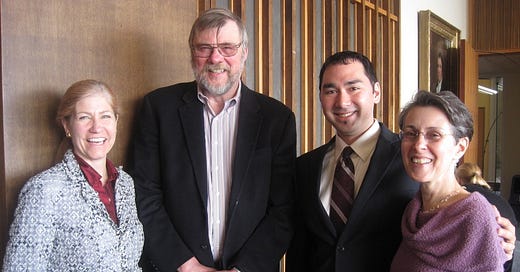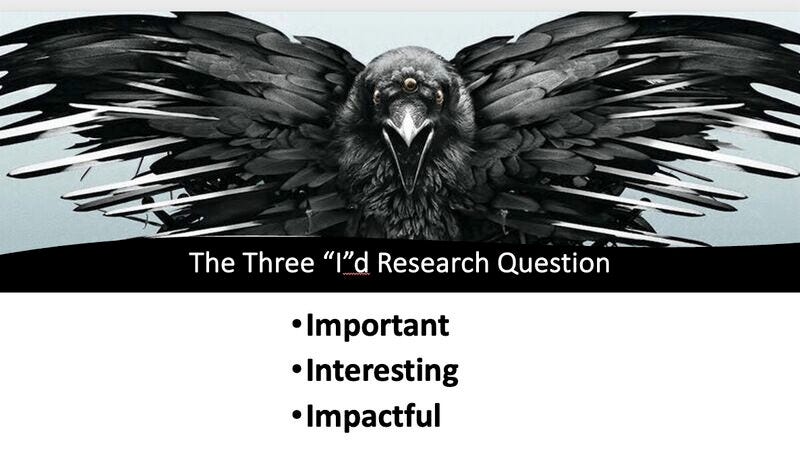Issue 8: How to Survive (and Thrive) in Academia
Lessons on Writing, Publishing, and the PhD Journey
I can’t complain about my experience as a PhD student. I went to a famous school. I had the best advisors imaginable. My colleagues were incredible. The resources and opportunities were unparalleled.
But there was one important thing we didn’t talk much about.
Publishing.
You know, publishing—the thing that, when absent, leads academics to perish. Oh sure, we talked about publishing in abstract terms. But there was scant formal instruction on the vagaries of the review process, the differences among journals in our field, or the finer points of the genre. I think everyone assumed someone else had told us. It was a big place, after all.
As graduation drew closer, my lack of publishing knowledge had burned a hole in my CV. As I discussed in my last newsletter, it took me years to get a grasp on it. And I wasn’t alone - many of us who graduated around this time had the same complaint.
When I got my first faculty job, I was determined to make sure that I helped PhD students avoid this issue. We weren’t just going to talk about sexy new ideas or where to get that amazing dataset. We were going to break down how to write a journal article. Step by step.
Today, I’m director of our PhD Programme and advising PhD students is my favorite part of the job. And here’s a smattering of what I teach students about writing, publishing, and academic careers.
A Guide to Colin’s Recent Posts
After years of aggressive disinterest in social media, I’ve started haphazardly sharing my insights on PhD life and writing on LinkedIn, and one thing is clear: people crave advice on how to navigate academia. This convinced me to organize my thoughts more systematically—starting with this newsletter.
I will now make this less hazard and merely hap.
Improving Your Writing
Want to improve your writing practice? Here are three things that have helped me:
Write every day! Consistency is the bedrock of professional writing.
But, don’t binge-write, trying to write in 6-8 hour chunks. Research shows that the most productive writers usually stop after 3 to 4.5 hours. Personally, I like to work on two projects at a time for variety, scheduling 1.5 - 2 hour sessions for each.
Take Strunk and White seriously and make the paragraph the unit of composition!
Asking Good Questions
Writing an Academic Journal Article
Academic journal articles are their own unique beasts. They differ from essays you wrote in college, and also from non-fiction books. I hope the pointers below are like TV Tropes, deconstructing the academic journal article medium (with an emphasis on my own field of management).

How can you "hook" readers in your academic article, thesis, or proposal?
How long should each section of your academic journal article be?
Applying to PhD Programs
My favorite post was something I say all the time to my students when they talk about clearing their next career hurdle. Whether you are finishing your dissertation, applying for jobs, or going up for tenure, here's what I think you should remember:
An academic career is like a pie eating contest…where the prize is more pie. Except research and writing are the pie.
PhD → do research and try to get it published
Get a job → do research and try to get it published
Get tenure → do research and try to get it published
So, if you want an academic career, you better really like pie. I mean research. You better really like research.Is anyone else hungry for pie now?
Further advice on academic careers:
For those who are PhD-curious, do your homework before making a decision. Many people like the idea of having a PhD, but not the reality of getting one - or an academic career. For 99.87% of people, a PhD is a questionable life decision (p < .05). Go save the world or something. Take it from the guy whose responsibility it is to help those who mistakenly started down this path and then need to get themselves out again: Leave it to us pie-eating weirdos.
Gigs etc.
I’m playing with Suedejazz Collective at 91 Livingroom this Friday, February 28th. The last one sold out, so get your tickets early!
Welcome (back) to The Fishbowl
[If you are a long-time reader of The Fishbowl, you may not find much new information here. This post is mostly an introduction for new readers. I’ll be publishing twice-monthly going forward, so more new content is coming soon!]










